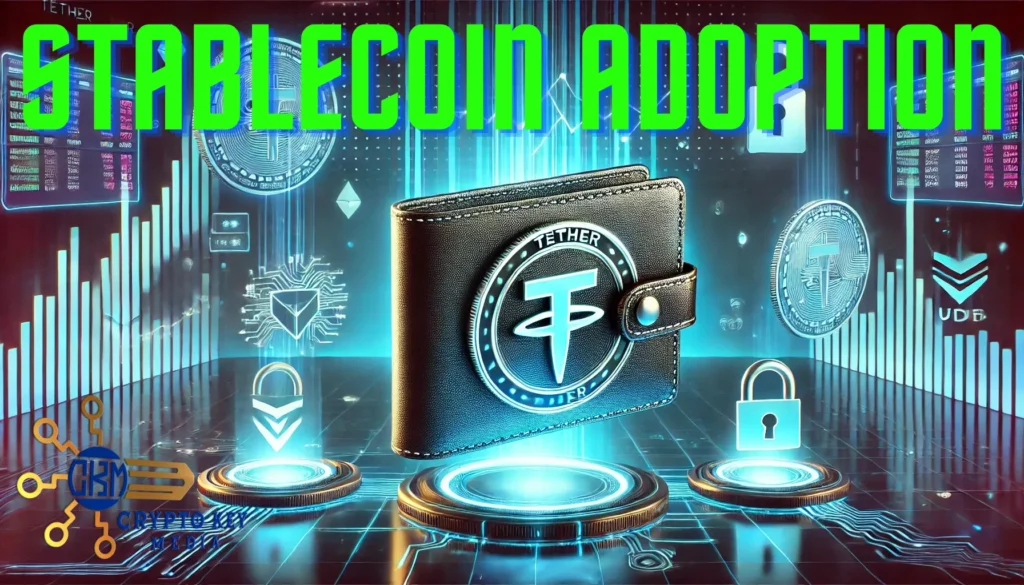
Stablecoin cryptocurrency basics are fundamental for anyone diving into the world of digital assets. As the cryptocurrency landscape continues to evolve, stablecoins have emerged as a vital solution to the problem of volatility that has long plagued digital currencies like Bitcoin and Ethereum. In this comprehensive guide, we will explore the core principles of stablecoin cryptocurrency basics, how stablecoins work, and why they are becoming an increasingly popular choice for both investors and everyday users.
What Are Stablecoin Cryptocurrency Basics?
Understanding stablecoins begins with recognizing what a stablecoin is. Unlike traditional cryptocurrencies, which are often subject to dramatic price swings, stablecoins are designed to maintain a consistent value relative to a specific asset or basket of assets. This unique characteristic makes stablecoins an attractive option for those seeking a more predictable and reliable store of value in the digital currency market.
How Stablecoin Cryptocurrency Basics Ensure Stability
At the heart of cryptocurrency basics is the concept of price stability. Stablecoins achieve this stability through various mechanisms, depending on their design. The most common types include:
- Fiat-Collateralized Stablecoins: One of the simplest and most popular forms of stablecoin cryptocurrency basics, fiat-collateralized stablecoins are backed by reserves of traditional fiat currencies, such as the U.S. dollar or the euro. For every unit of stablecoin issued, there is an equivalent amount of fiat currency held in reserve. This ensures that the stablecoin’s value remains pegged to the fiat currency, providing a stable and predictable value.
- Commodity-Collateralized Stablecoins: Another important aspect of stablecoin cryptocurrency basics is commodity-collateralized stablecoins. These stablecoins are backed by physical commodities like gold, silver, or oil. The value of the stablecoin is directly linked to the market price of the underlying commodity, offering stability and serving as a hedge against inflation and other economic risks.
- Crypto-Collateralized Stablecoins: For those well-versed in stablecoin cryptocurrency basics, crypto-collateralized stablecoins present an interesting variation. These stablecoins are backed by other cryptocurrencies, such as Bitcoin or Ethereum. To ensure stability, the value of the collateralized cryptocurrency must exceed the stablecoin’s value. This over-collateralization allows the stablecoin to maintain its peg even if the underlying cryptocurrency’s price fluctuates.
- Algorithmic Stablecoins: A more advanced concept within stablecoin cryptocurrency basics is algorithmic stablecoins. These stablecoins rely on complex algorithms to manage their supply and demand. The algorithm automatically adjusts the supply of the stablecoin based on market conditions to keep its price steady. While this approach does not require collateral, it does depend on the robustness of the algorithm to maintain stability.
Why Understanding Stablecoin Cryptocurrency Basics Is Important
Stablecoin cryptocurrency basics are crucial for anyone involved in the digital currency space because they offer several key advantages over traditional cryptocurrencies and fiat currencies:
- Reduced Volatility: One of the main reasons people explore stablecoin cryptocurrency basics is to find a solution to the volatility commonly associated with cryptocurrencies. Stablecoins provide a more stable store of value, making them attractive to both users and investors who prefer predictability in their digital assets.
- Fast and Low-Cost Transactions: Another benefit of understanding stablecoin cryptocurrency basics is the potential for quick and inexpensive transactions. Stablecoins enable seamless, low-cost transactions, making them ideal for remittances, cross-border payments, and everyday use. This is especially important in regions where traditional financial services are either slow or expensive.
- Financial Inclusion: A critical aspect of stablecoin cryptocurrency basics is their potential to expand access to financial services. Stablecoins can provide a gateway to banking for unbanked and underbanked populations, offering them access to the global financial system without the need for traditional banking infrastructure.
- Decentralized Finance (DeFi) Applications: Stablecoin cryptocurrency basics are also foundational to the rapidly growing Decentralized Finance (DeFi) ecosystem. Stablecoins play a crucial role in supporting decentralized lending, borrowing, and trading platforms, providing liquidity and stability to the DeFi market.
The Future of Stablecoin Cryptocurrency Basics
As we look to the future, stablecoin cryptocurrency basics will continue to play an integral role in the broader cryptocurrency ecosystem. With their ability to offer stability, security, and accessibility, stablecoins are poised to become even more central to the digital economy. For investors, understanding stablecoin cryptocurrency basics is not just a matter of staying informed; it’s about positioning themselves to take advantage of the evolving financial landscape.
Conclusion
In conclusion, stablecoin cryptocurrency basics are essential knowledge for anyone involved in the world of digital assets. By providing stability in a volatile market, enabling fast and low-cost transactions, and supporting financial inclusion and DeFi applications, stablecoins represent a significant innovation in the cryptocurrency space. As the cryptocurrency ecosystem continues to grow and evolve, mastering stablecoin cryptocurrency basics will be key to navigating and succeeding in this dynamic environment.
Read More: Here








